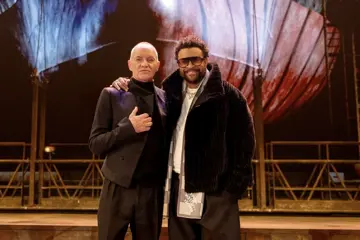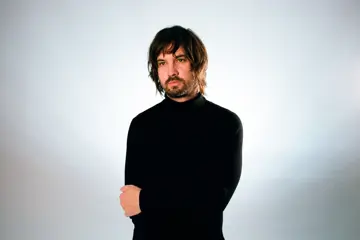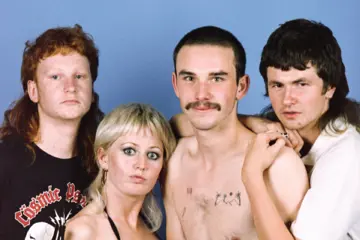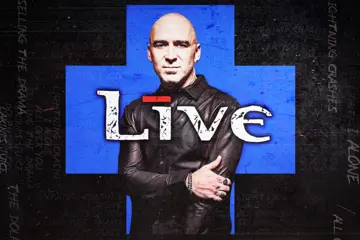There are bands that are certainly synonymous with punk music, so much so that it's hard to separate the two.
The Clash, The Sex Pistols, Blondie to name just a few. You'd be hard pressed to think of punk and not have those leather jacket clad, hair over their eyes, play anything four times as fast as you Ramones.
In Conversation With Marky Ramone certainly pulled one of the largest crowds at this year's Face The Music.
While not a founding member of the band, Marc Bell spent just over 15 years alongside his brothers by name. Between them, Marky, Joey, Johnny and Dee Dee (the last official line-up of the group) went on to create one of the most influential and revered bands not only in punk, but in music history as well.
The moment Bell walks onto the stage, a hush befalls the cathedral the crowd are gathered in. Dressed in all black with the same iconic haircut the group sported in their heyday, Bell sits, patiently chewing gum while he waits to be introduced by interviewer David Roy Williams.
Williams introduces Bell warmly, which is met with a huge round of applause from the audience. Bell waves to the crowd and comments on the beauty of the church we're gathered in.
For someone who could choose to act like a 'rock star' at this point in his life and career, it's interesting to note he doesn't. He's polite, forthcoming, always engaged with the crowd, and probably most surprising, quite funny — unexpected when you think of the sullen and tough looking images of the Ramones during their prime.
Don't miss a beat with our FREE daily newsletter
Williams is a great moderator for the conversation, interjecting at just the right points to ensure the flow of the story but also give Bell the space to share as he wishes.
The conversation begins with Bell's experience of the legendary New York punk scene, and in particular his experiences with the iconic CBGB's.
"At the time, disco and stadium rock was very big," he shares. "A lot of venues didn't want to book us because the genre was so new."
"People came from everywhere," Bell says of the legendary club. "That's how you met producers, writers engineers. Other musicians came out of curiosity."
Prior to his time with the Ramones, Bell drummed for Richard Hell & The Voidoids and spent time touring through Europe with the group.
It was when Bell returned from the tour that Tommy Ramone asked him to take over his role as drummer in the band.
"I guess it was a chemical reaction," he says on Tommy asking him to join the band. He then laughs at the novelty of having to learn the Ramones back catalogue off a cassette.
Soon after, on the set of Rock 'N' Roll High School, that the band were approached by Phil Spector about producing their next album. Bell retells it as Spector simply asking them "do you want to make a good album or a great album?"
Spector's subsequent history has been infamous, something Bell reflects on but not taking that part of the conversation all too deeply.
"I miss him but unfortunately he can’t be with us at the moment," he says about Spector.
A consistent theme throughout the talk is Bell's staunch opinion of drug taking due to his experiences with his bandmates.
"I like drinking. Dee Dee was the drug guy, so opposites attract," he says of the man he calls his best friend.
"It will he interfere with your timing, it will interfere with your attitude," he says advising young musicians in the audience to avoid cigarettes, drinking everyday and hard drugs.
The In Conversation stretches on for about an hour, though it flies past.
A question is raised from the audience about the significance of the Ramones logo and its use within pop culture and fast fashion. Bell is unfazed by its use, saying "the band becomes a corporation."
"They’re proud to wear it, I’m not going to stop them."
Ultimately, Bell lived up to exactly what you hope of a musician with a near 50-year-long career — willing to share his experiences and years of knowledge, then walking out with his back straight and head held high.















